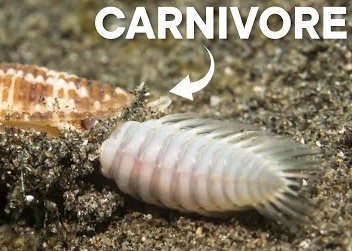10 Common Nutrition Myths You Should Stop Believing
The internet is a treasure trove of quick fixes and fad diets, all promising to help you lose weight, build muscle, or get fit with minimal effort. From “lose 10 pounds in a week” to “get ripped in 30 days,” these one-size-fits-all solutions sound tempting, especially when they claim to work for everyone without any customization. But let’s be real—most of these tips are pure nonsense, and the diets? They rarely deliver.
The problem with these trends is that they ignore one crucial fact: everyone’s body is different. What works for your friend or that Instagram influencer might do absolutely nothing for you. These fads often rely on extreme restrictions or gimmicks that aren’t sustainable—or healthy—in the long run. Sure, you might see short-term results, but they’re usually followed by frustration and disappointment when the weight comes back or the muscle gains stall.
The truth is, there’s no magic shortcut to fitness. Instead of chasing the latest trend, it’s better to focus on a balanced approach that fits your lifestyle, preferences, and goals. That might mean experimenting with different types of exercise, finding foods you enjoy that also fuel your body, or even working with a professional to create a plan tailored to you. It’s not as flashy as a 7-day detox, but it’s far more effective—and sustainable.
10.Myth: Non-Celiac Gluten Sensitivity
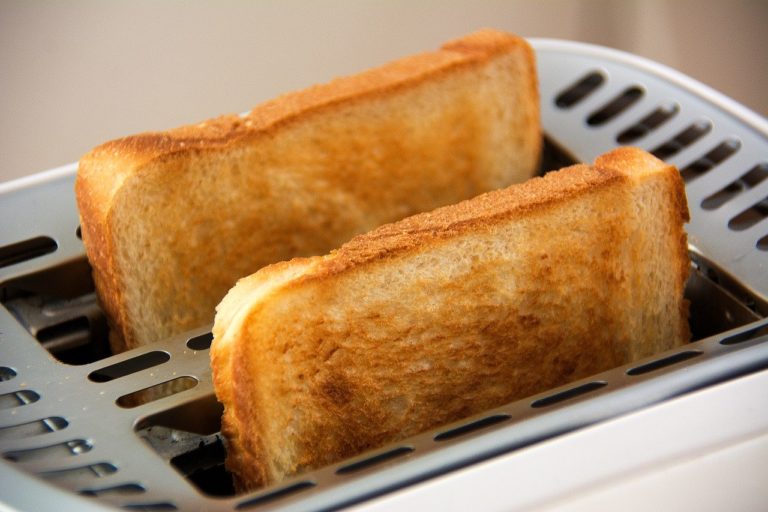
Non-celiac gluten sensitivity is one of those topics that sparks heated debates—both in the medical world and at your average dinner table. Some doctors are starting to diagnose it, but plenty of researchers remain skeptical, arguing that we might be barking up the wrong tree. While it’s clear that some people feel better when they cut out gluten, the big question is: is gluten really the villain, or is something else to blame?
Here’s the thing: in medicine, there’s a saying that when you hear hooves, you should think horses, not zebras. In other words, the simplest explanation is usually the right one. And when it comes to gluten sensitivity, the simplest explanation might not be gluten itself. Researchers have been digging into other possibilities, like FODMAPs—a group of fermentable sugars found in many gluten-containing foods. Studies show that when people cut out FODMAPs but kept eating gluten, only 8% still had issues. That’s a pretty big clue that gluten might not be the main culprit.
Then there’s another suspect: Amylase Trypsin Inhibitors (ATIs). These are proteins found in gluten products that can mess with your gut and cause discomfort for some people. So, while gluten-free diets might help, it’s possible that it’s not the gluten itself but these other components causing the trouble.
The bottom line? Non-celiac gluten sensitivity is still a bit of a mystery. While some people genuinely feel better avoiding gluten, the science suggests it might not be the gluten itself causing the problem. It’s a reminder that our bodies are complex, and sometimes the answer isn’t as straightforward as we’d like. If you’re curious about gluten sensitivity, it’s worth digging deeper—because the real culprit might be hiding in plain sight.
9.Myth: Carbohydrates And Fats Are Bad For You, But Protein Is Good
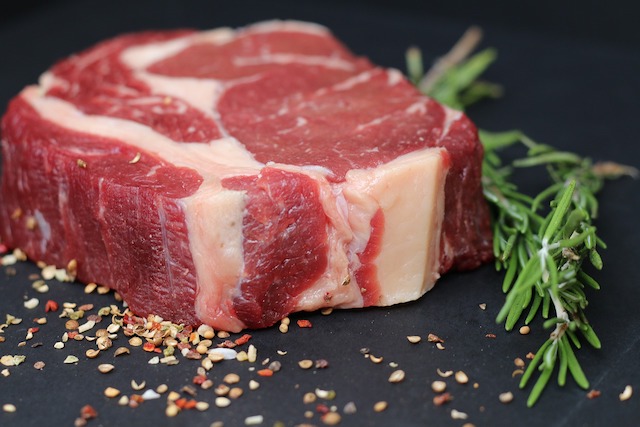
We’ve all heard the same old advice: carbs make you fat, fat makes you fat, and protein is the golden child that builds muscle and keeps you energized. These ideas are so ingrained that they’ve spawned countless fad diets, many of which cut out entire food groups entirely. But here’s the thing: going to extremes with your diet isn’t just unnecessary—it can actually be harmful.
The truth is, carbs, fats, and proteins are all essential macronutrients, and your body needs all three to function properly. Let’s break it down. Carbs often get a bad rap, but not all carbs are created equal. Sure, processed carbs like white bread and sugary snacks aren’t great for you, but whole grains, fruits, and vegetables? They’re packed with nutrients and energy your body needs. Cutting out carbs entirely can leave you feeling sluggish and deprived.
Then there’s fat. Contrary to popular belief, eating fat doesn’t automatically make you fat. In fact, healthy fats—like those found in fish, nuts, avocado, and olive oil—are crucial for brain health, hormone production, and even absorbing certain vitamins. The key is choosing the right kinds of fats and not overdoing it.
And finally, protein. It’s often hailed as the ultimate macronutrient, and while it’s true that protein helps build and repair muscle, you don’t need to go overboard. If you’re not super active, loading up on protein won’t do much except maybe strain your kidneys. Balance is key.
The takeaway? Instead of demonizing one macronutrient or jumping on the latest diet trend, focus on eating a balanced mix of carbs, fats, and proteins. Your body will thank you for it. After all, food isn’t the enemy—it’s fuel. And like any good engine, your body runs best when it gets the right mix of everything.
8.Myth: People Who Are Extremely Overweight Can Lose Weight As Easily As The Next Guy
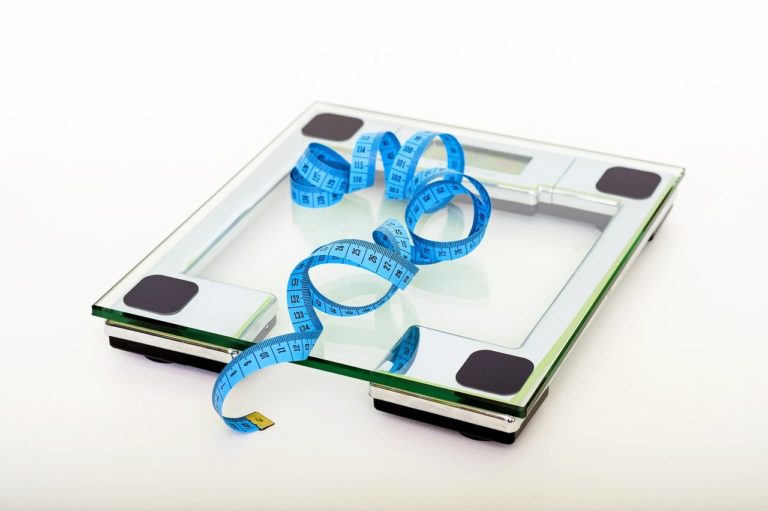
It is quite common for people to look at those who are extremely overweight, and wonder why they don’t just lose some weight. Some people think that they don’t really try to lose weight at all, or only half-heartedly try on rare occasions. However, the truth is that many obese people are struggling hard to lose weight and have it harder than normal-sized people. Once you start to reach a certain level of overweight, hormonal changes can take place in your body which make it hard to get the weight back off.
First, those who are extremely overweight can develop a resistance to an important hormone called Leptin. This hormone is very important for regulating how much fat your body creates and stores. When this hormone is not working properly your body will resist shedding fat, even when you are taking the right steps to lose weight. Secondly, the more weight you gain, the more likely you are to gain insulin resistance, making it harder to convince your body that it is okay to shed that extra fat. This doesn’t mean someone who has a lot of extra weight can’t achieve their goals, but it may be harder for them.
7.Myth: Sodas With Sugar Substitutes Will Help You Lose Weight
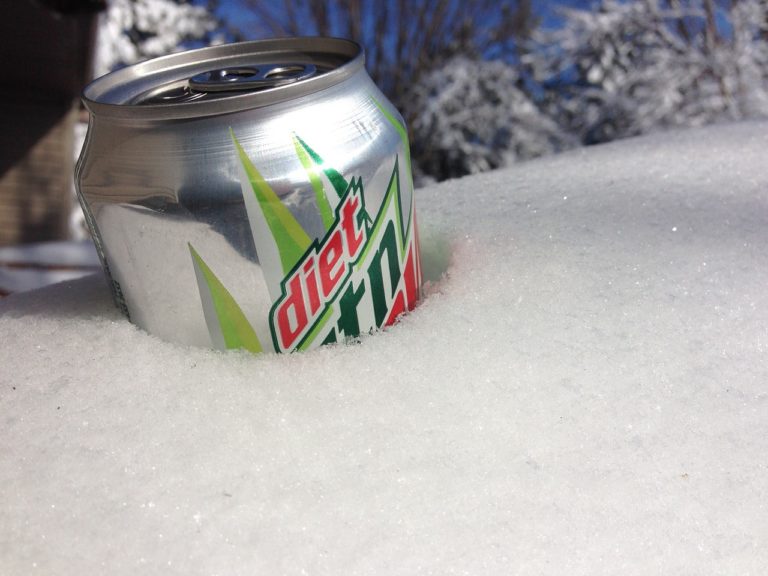
Sugar-free sodas are insanely popular and have become such a diet trend over the years that the versions of sodas like Coca-Cola that don’t have sugar have become more popular than their regular versions. People think of them as a great way to control their sugar cravings and lose weight, keeping that sweet tooth in check with none of the guilt. For a lot of people, it is an easy step and the first transition they take when trying to be a little bit healthier.
However, the unfortunate reality is that the evidence doesn’t bear out that sugar-free sodas with sugar substitutes have any benefit when it comes to weight loss or controlling our sugar cravings. Now, this doesn’t mean that diabetics should go drinking sugared sodas, as they have a very good medical reason for using sugar substitutes. For everyone else, a review of 283 studies found no evidence at all that sugar-free sodas help with weight loss. You might think that getting rid of sugared sodas would help, but the problem is that the substitutes do not satisfy our cravings, and we just end up getting as much or more sugar from somewhere else.
6.Myth: It’s Okay To Burn Lots Of Fat In A Short Time
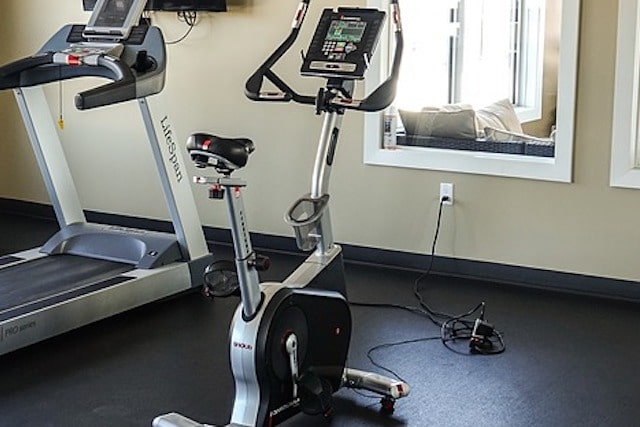
Crash diets will offer you a chance to lose all that extra weight that you’ve been wanting to get rid of in just a few months, or even weeks. What they claim seems like magic, and burns all that fat right off. Now, while the efficacy of these diets is also in question, the bigger problem is that even if the diets did work, they wouldn’t be safe for you to do. It is simply not medically advisable to lose lots of weight in a short amount of time.
According to experts, you should not be losing more than one to two pounds of weight per week. This is a normal and healthy amount of weight loss if you have a good fitness plan. If you try to go faster than this, you can put yourself at risk of health complications. The issue is that to lose more than a couple of pounds a week, you are going to have to go extremely hard on the calorie deficit. This can lead to various problems including gallstones, a slowed metabolic rate, malnutrition, fatigue, and more.
5.Myth: Preworkout Powder Is Important For Getting Massive Gains

Pre-workout powder has become a must-have for many gym-goers, especially in the bodybuilding world. Top athletes often endorse these products, and for some, it’s hard to imagine hitting the weights without that extra boost. These powders are packed with a mix of ingredients—amino acids, vitamins, and stimulants like those found in energy drinks. But the real star of the show? Caffeine. And there’s a lot of it.
In fact, most pre-workout blends contain way more caffeine than your average cup of coffee. That’s not necessarily a bad thing if you’re looking for a quick energy kick, but here’s the catch: the supplement industry isn’t tightly regulated. That means the ingredients can vary wildly from brand to brand, and you never really know what you’re getting beyond the caffeine. One scoop might give you a clean energy boost, while another could leave you jittery or crashing hard.
Now, don’t get me wrong—pre-workout powder isn’t inherently dangerous if you follow the instructions and avoid mixing it with other stimulants like energy drinks or coffee. But here’s the thing: it’s not a magic potion. It won’t make up for a poor diet or lack of sleep, and it’s definitely not a necessity for a good workout. Plenty of people crush their fitness goals without ever touching the stuff.
So, should you try it? If you’re curious, go for it—but start slow and pay attention to how your body reacts. Just remember, no amount of pre-workout powder can replace the basics: a balanced diet, proper hydration, and consistent effort. At the end of the day, the best pre-workout might just be a good night’s sleep and a solid meal.
4.Myth: Need Potassium? Reach For A Banana
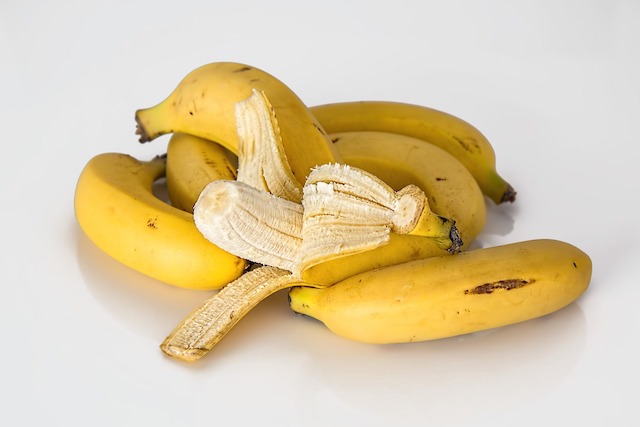
Now, we want to be clear that we aren’t saying that bananas are low in potassium. They have a pretty large amount. However, most people think of bananas as the thing to reach for if you need a potassium boost but would be hard-pressed to tell you about other items that contain this essential electrolyte. This myth is so pervasive it has appeared in movies like Honey We Shrunk Ourselves, where a kid with a potassium problem who couldn’t find his medication saves his life with a banana.
It is true that if you cannot find anything else with potassium on hand and you really need some a banana will help, but there are tons of options with higher amounts of it. Legumes, especially white beans, leafy greens, yams, many melons, and a plethora of other fruits and vegetables have significantly more potassium than a banana. While you may not have a lot of these on hand or know how to cook with them if you are not a big vegetable lover, you probably like at least a food item or two that is heavily tomato-based, These are another produce item with significantly more potassium than a banana and less sugar.
3.Myth: Brown Rice Is Better For You Than White Rice
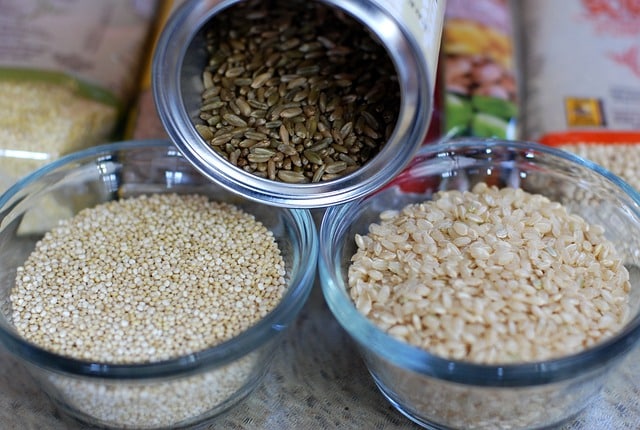
Many people prefer white rice but wish they could tolerate brown rice more, as they know it is better for them. It has more vitamins, without the need to be enriched, and it has more fiber as well. On top of this, it is lower on the glycemic index. This makes it sound, on paper, like the far healthier option to consume regularly. However, there are some issues with brown rice that make it far more than a cut-and-dried decision.
Now, since white rice is still a processed, enriched grain, it is not necessarily a good idea to eat it as your only or main source of carbohydrates, but brown rice may not necessarily be a great replacement either. Because it is processed less, brown rice has 80% more inorganic arsenic than white rice, which has caused concern among some public health experts. Even if we could get a handle on the arsenic problem, brown rice contains phytic acid, which many people have trouble digesting, and can stop your body from properly absorbing iron and zinc.
2.Myth: Fad Dieting Will Help You Achieve Your Long-Term Weight Loss Goals
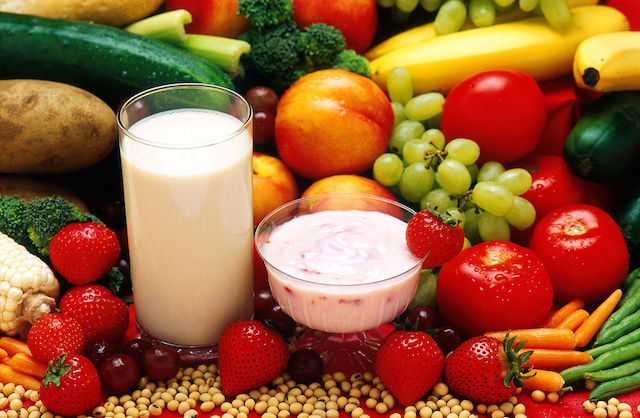
This might sound like common sense, but statistics show that at any given time one in five Americans report being on some fad diet. These diets often involve severe caloric restriction, severe restrictions of various food groups, and other one-size-fits-all features that promise to make you shed those extra pounds and have the body you always dreamed of. Unfortunately, while one in five Americans are regularly on a diet of some type, these diets have been proven by scientific studies not to be effective for long-term weight loss — in fact, many people gain back more than they lose.
That’s because most of these diets are either crash diets or too restrictive for the average person to stick with them long-term. They lose some weight temporarily, but rebound once they quit the diet, which they barely manage to keep up. These diets are designed in a way that, scientifically, they are very hard to sustain. The answer to long-term weight loss is finding a balanced, nutritious diet that works for your body, and also has tastes and textures that you can look forward to and not feel restricted by.
1.Myth: Trying To Lose Weight Or Gain Muscle? Keep Your Eyes On The Scale
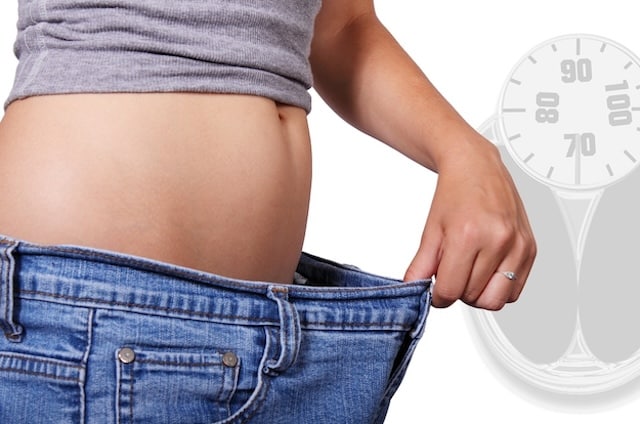
When you’re on a fitness journey—whether it’s to lose weight, build muscle, or both—it’s easy to get caught up in the numbers on the scale. After all, it feels like a straightforward way to measure progress. Shows like The Biggest Loser have turned weight loss into a dramatic numbers game, making people feel like every pound counts. But here’s the thing: obsessing over the scale can do more harm than good.
The problem is, your weight isn’t a static number. It can swing by five to eight pounds in a single week—or even in a single day. Why? Because it’s influenced by so many factors: how much water you’re retaining, what you’ve eaten, whether you’ve gone to the bathroom, and even the time of the week. Studies show that people tend to weigh the most on Sundays, with weight gradually dropping through the week before creeping back up again. That means stepping on the scale every day can leave you feeling frustrated, even if you’re making progress.
So, what’s the solution? Don’t let the scale be your only measure of success. Instead, focus on how you feel. Are your clothes fitting better? Do you have more energy? Are you getting stronger or faster? These are all signs that you’re moving in the right direction, even if the scale doesn’t always reflect it.
At the end of the day, the scale is just one tool—and not always the most reliable one. If you’re going to use it, weigh yourself at the same time once a week, and don’t let the number define you. Progress isn’t just about pounds; it’s about how you feel and the habits you’re building. So, take a deep breath, step back from the scale, and celebrate the small wins along the way.



















